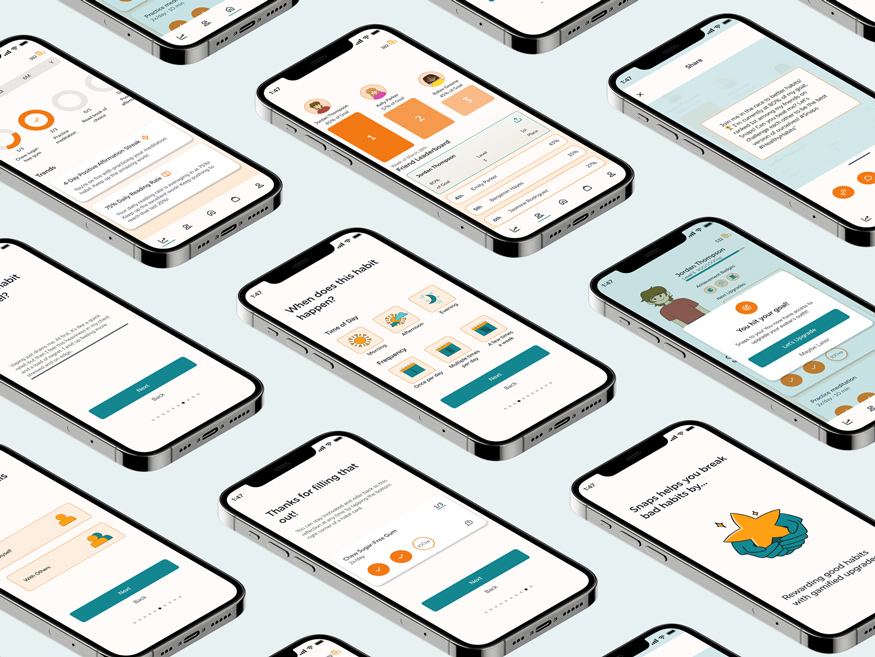Snaps
Challenge
How can we design a gamified mental health app to effectively motivate users in forming better habits?
Context
For my Interactive Design class, I was paired with two other Digital Media Design students to design a mental health app solution. After some group research which revealed that nationally, 72% of adults report having one or more unhealthy behaviors, our group decided to have our app’s mission be to help users combat their bad habits. With one student working on illustration, another working on research and communication, and myself working as the lead on UI design and prototyping, our group was able to design a Figma prototype for a gamified, positive habit enforcing app: Snaps.

Action
Our group put an emphasis on design research. We researched the psychology of effective methods for breaking bad habits, discovering that habit substitution, self-reflection, and visualization are highly effective methods in breaking bad habits. We also investigated current apps on the market with claims to help break bad habits, finding upon testing them that their methods were too degrading and not fun or empowering.
Following suit with our research, we made the basis of the app habit substitution (swapping a bad habit for a good one), included gamification with avatar upgrades to help users visualize themselves improving through rewards, and designed a self-reflective onboarding process to help users get to the root issues behind their bad habits. We included habit analytics and a friend leaderboard in the app as well to help users stay motivated through data and their community.
Impact
Through this project, I gained experience with design research and user research, implementing data findings, SWOT analysis, user personas, empathy maps, and user journey maps into the creation of a mobile app prototype. Additionally, I refined my Figma prototyping skills as I designed a tutorial-like guide to walk users through the app’s features.